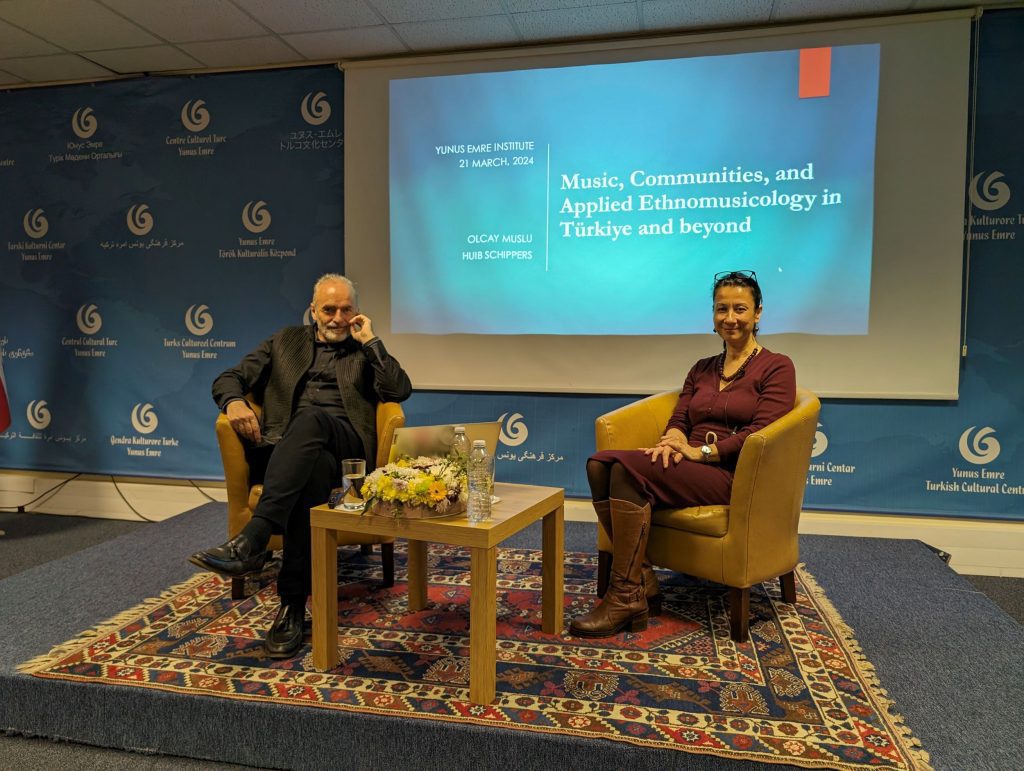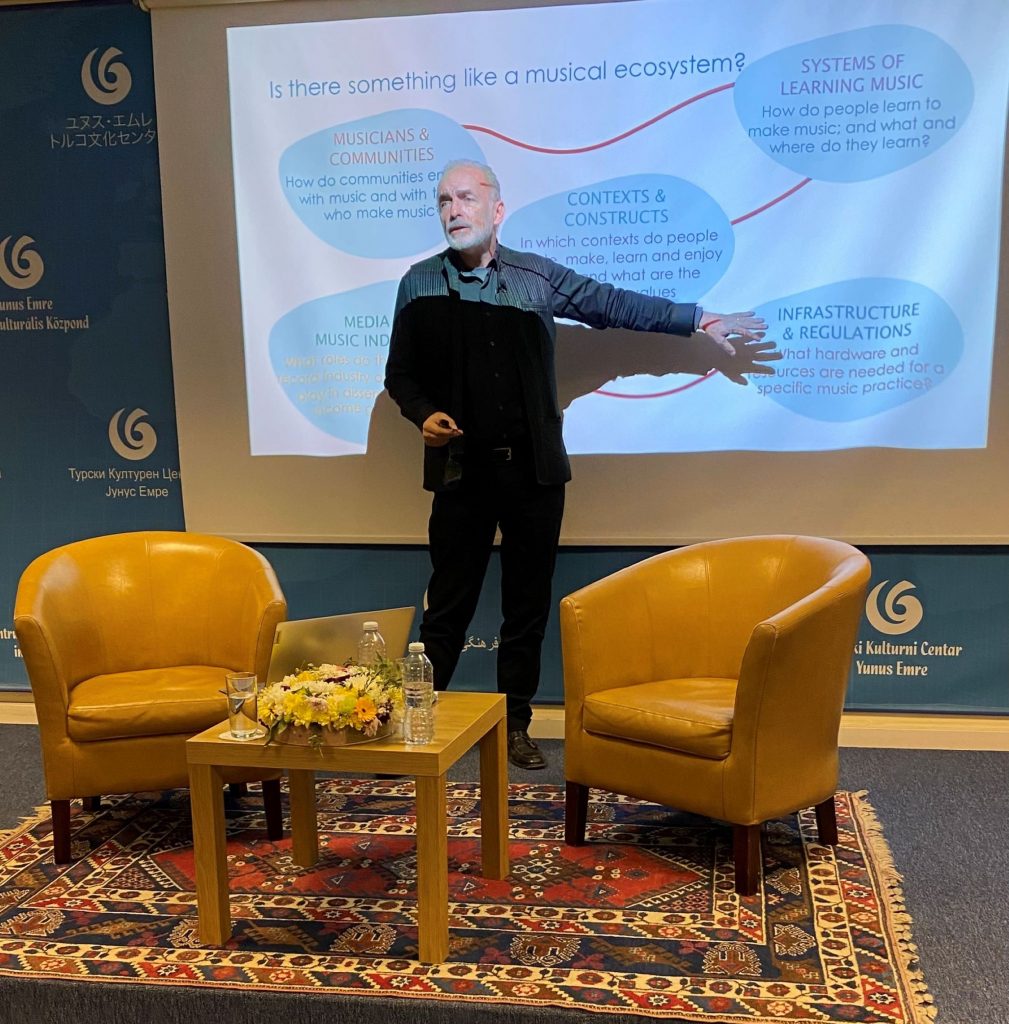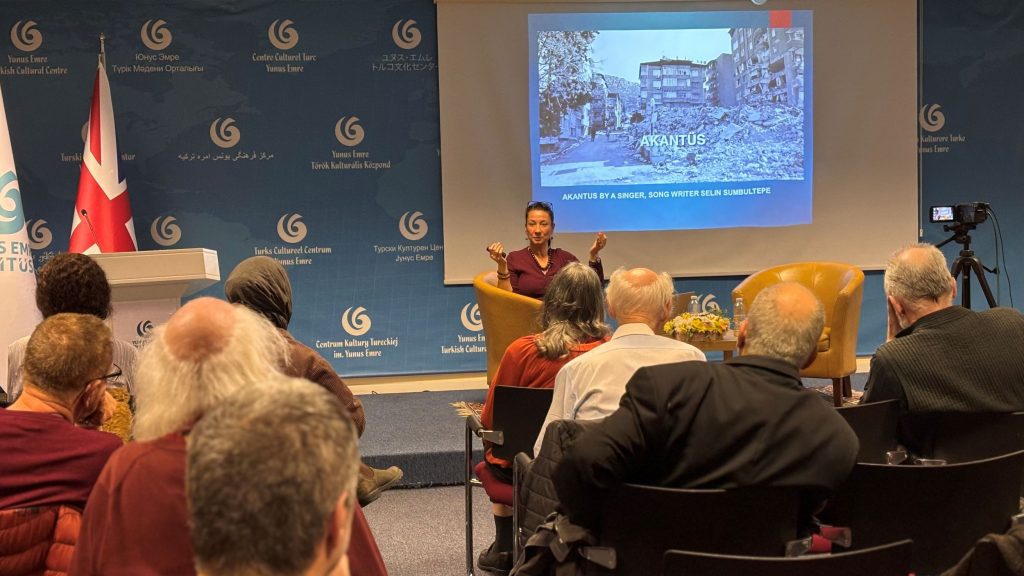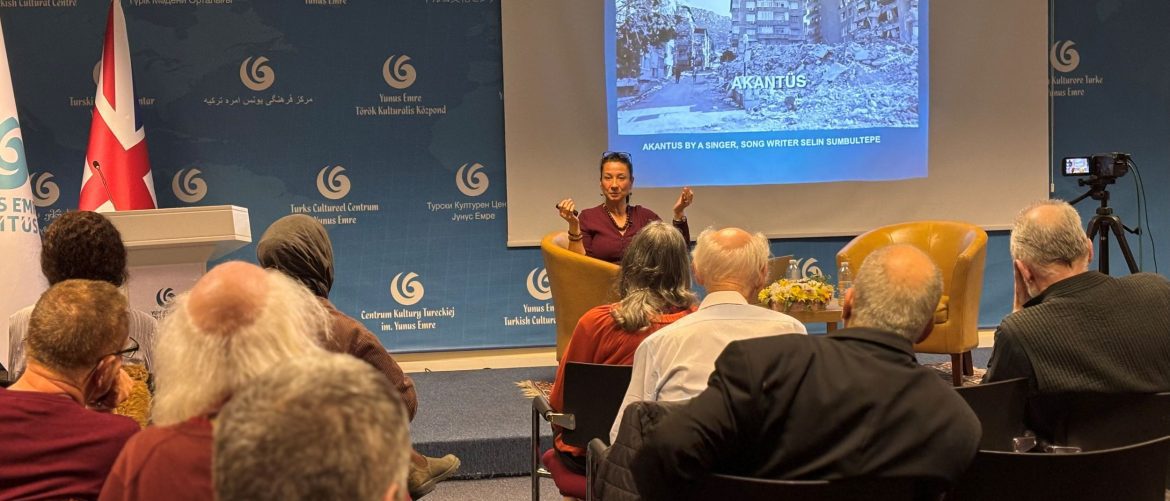 Yunus Emre Institute London hosted an inspiring lecture that resonated with the harmonious chords of applied ethnomusicology. The event, held at the Institute welcomed a diverse audience eager to explore the intersection of music, community, and cultural sustainability in Türkiye and beyond.
Yunus Emre Institute London hosted an inspiring lecture that resonated with the harmonious chords of applied ethnomusicology. The event, held at the Institute welcomed a diverse audience eager to explore the intersection of music, community, and cultural sustainability in Türkiye and beyond.
The evening’s discourse, led by esteemed speakers Olcay Muslu and Huib Schippers, explored the transformative power of music within communities. They presented two innovative models for sustaining music practices: as vital parts of cultural ecosystems and as treasures of national heritage.

During the lecture, Olcay Muslu and Huib Schippers illuminated the audience on the recent initiatives of the MİRAS Centre for Cultural Sustainability. They discussed their groundbreaking work in supporting post-earthquake communities in Hatay, where they have been instrumental in rebuilding not just the physical infrastructure but also the intangible cultural heritage that defines the region. The speakers highlighted the Centre’s efforts in educational and community projects, which aim to restore the living cultural heritage of Hatay, known for its rich history, gastronomy, and diverse cultural practices. This approach aligns with the two models of applied ethnomusicology they advocate for: embedding music practices within cultural ecosystems and recognizing them as part of a nation’s heritage.

In addition to their work in Hatay, Muslu and Schippers discussed broader implications of applied ethnomusicology in Türkiye. They emphasized the role of music as a social catalyst, capable of bridging divides and strengthening community bonds across diverse cultural landscapes. The MİRAS Centre’s initiatives extend beyond crisis response, aiming to integrate music education into public schools and local governance, thereby ensuring the longevity of Türkiye’s rich musical heritage. The speakers also addressed the challenges of cultural preservation in the face of rapid urbanization and globalization, advocating for policies that prioritize cultural ecosystems within urban development plans.
Muslu and Schippers shared their experiences working with the MİRAS Centre for Cultural Sustainability, highlighting their efforts in initiating music projects to aid post-earthquake communities in Hatay. Their work has been instrumental in fostering wellbeing, community cohesion, and a renewed sense of place.
The lecture not only shed light on the scope, methods, and goals of applied ethnomusicology but also sparked a dialogue on its role in societal development, both domestically and internationally.
The event concluded with an engaging question-and-answer session, where the speakers and audience members exchanged thoughts on the practical applications of their field, the resilience of music traditions, and the role of music in healing and rebuilding communities.

